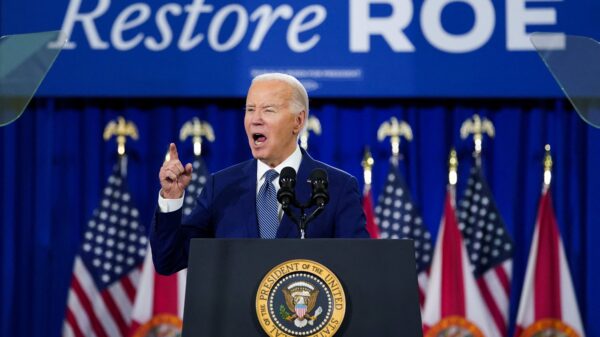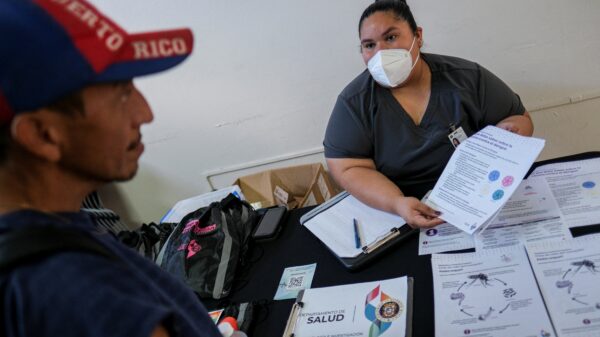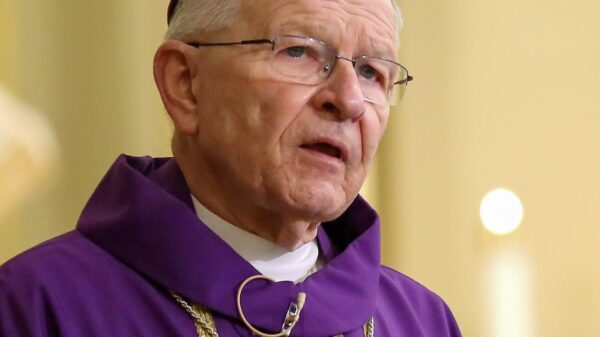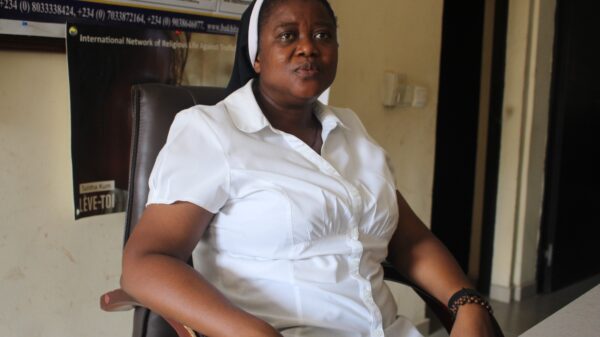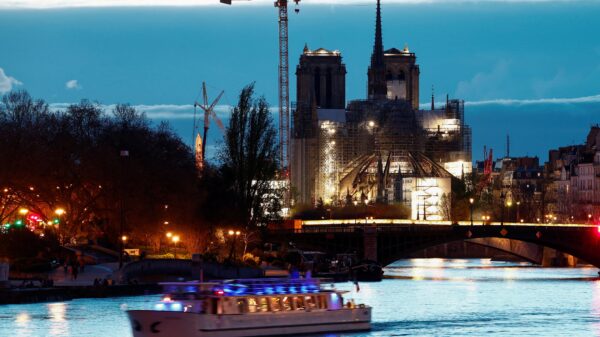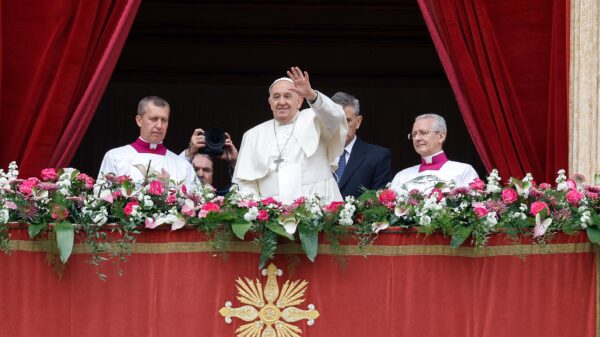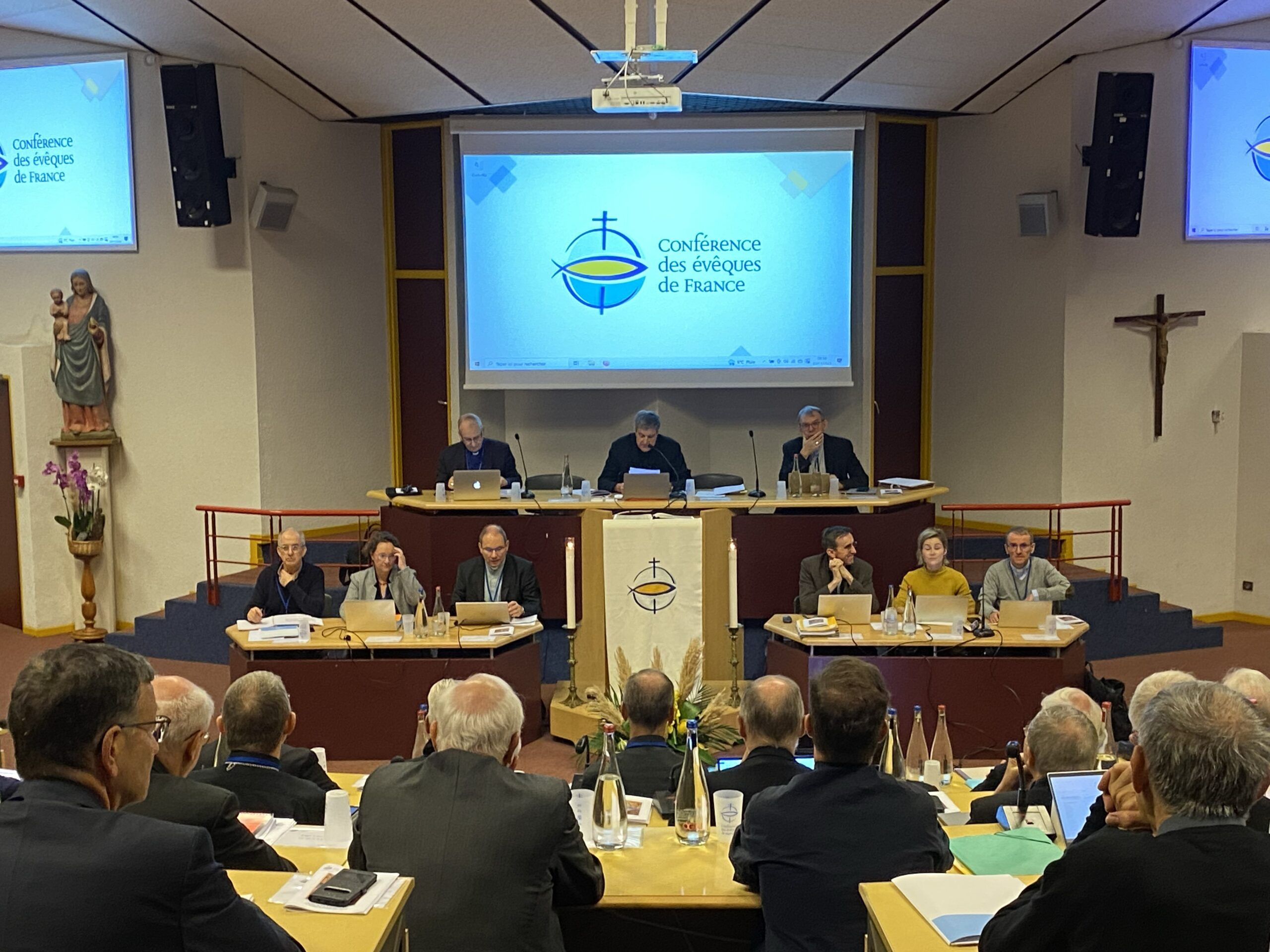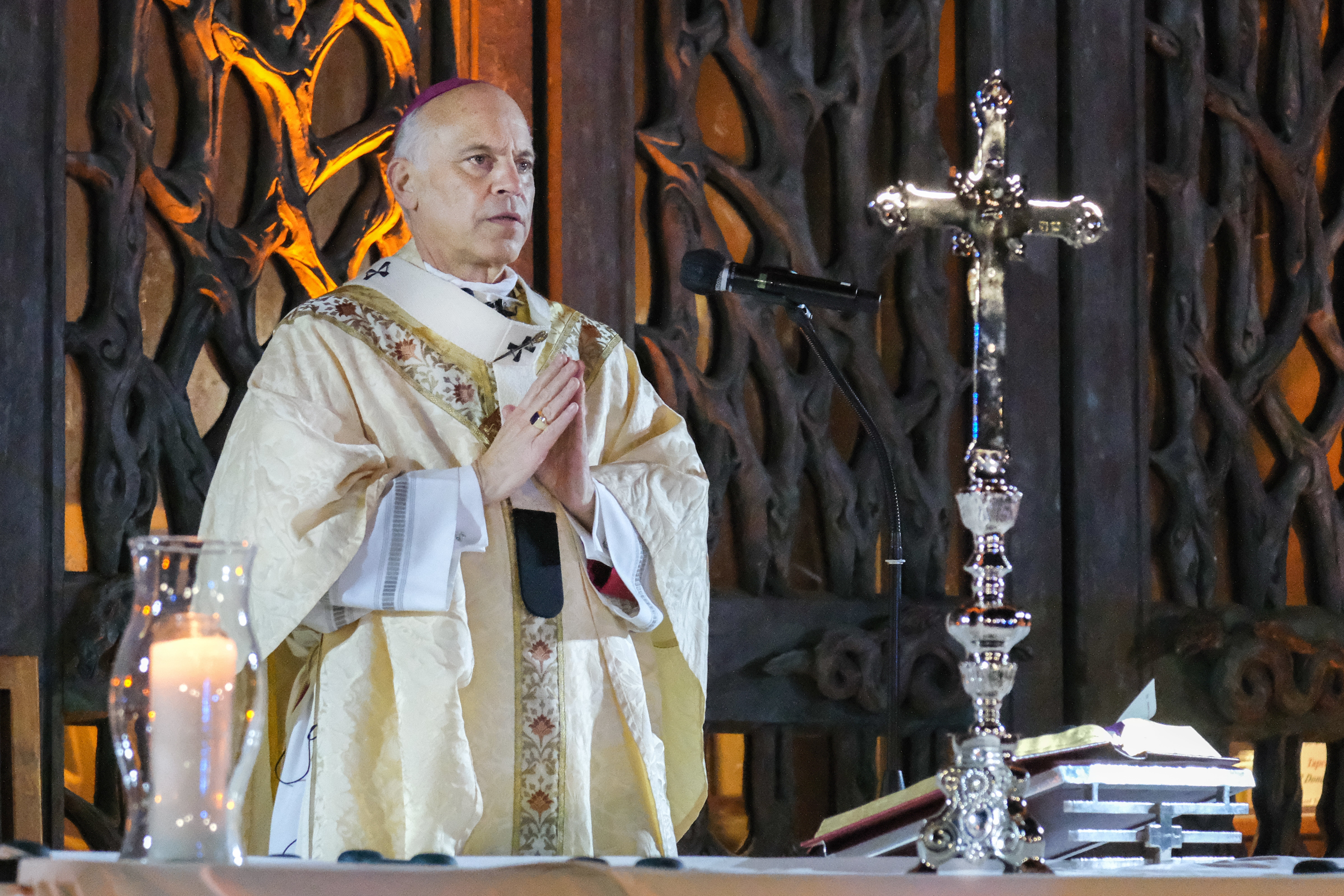By Caroline de Sury
(OSV News) — Gathered at their plenary assembly in Lourdes Nov. 3-8, the French bishops discussed abortion, migration and mission — the latter received with a sigh of relief after years of focusing the plenary assemblies on abuse.
The French bishops criticized a government bill to include the “freedom to have an abortion” in the French Constitution, currently under discussion.
In an online post Oct. 28, Macron said that “in 2024, the right of women to choose abortion will become irreversible.”
The announcement follows a promise Macron made March 8, International Women’s Day, which was seen as a response to the overturning of Roe v. Wade by the U.S. Supreme Court last year.
So far, the French Senate and the National Assembly have not reached agreement on the bill, which is aimed to be voted on in the referendum. A November 2022 opinion poll found that 89% of respondents were in favor of making a right to abortion constitutional. The other option is that it would be approved by the Parliament, without any referendum.
The bishops expressed their “concern” in Lourdes. “We reaffirm that all life is a gift to this world, a fragile and precious gift, infinitely worthy, to be welcomed and served from its beginning to its natural end,” they wrote.
For the bishops, “the biblical commandment ‘Thou shalt not kill’ inscribed in all consciences, beyond those of believers alone, means that every human being is entrusted to the solicitude of all others.”
“In a way, we are all responsible for these unborn children,” the bishops wrote. “Real progress lies in mobilizing everyone, believers and nonbelievers alike, so that the welcoming of life is given greater help and support,” they added.
The bishops also insisted that women’s rights, such as “real wage equality” and “social support for their role in bringing up children,” must be “further promoted and guaranteed.” But for the bishops, it is not legitimate to “put abortion on the same level as these fundamental rights.” “To include it among the fundamental rights would be to damage the whole balance of these,” they said.
Since 1975 women have had a legal right to terminate their pregnancy in France. The late Simone Veil, who served as France’s health minister in several governments and is considered a godmother of French abortion rights called the Veil Law Act, always claimed that “no woman resorts to an abortion with a light heart,” and that it is “always a tragedy.” Since 2012, abortion procedures have been fully reimbursed by social security.
In 2022, there were over 234,000 abortions for 723,000 births in France, the highest number of abortions since 1990, and the highest number among European Union countries — a “sad record,” wrote the bishops. “This dramatic reality goes beyond the mere question of a right for women” and “is not progress.” “Our society should see it above all as a sign of its failure to educate, accompany and provide social, economic and human support to those who need it,” they added. “It should be worried about its future, given the foreseeable decline in its population.”
The bishops’ assembly was not mainly focused on abortion, however. After four years of assemblies dominated by the sexual abuse crisis, this one focused on mission. “We were all very happy to talk about the mission because it touched the heart of our vocation,” Bishop Alexandre Joly of Troyes told journalists.
“This assembly marked a real turning point, a change of atmosphere,” Bishop François Jacolin of Luçon told OSV News. “We now feel a real new breath of hope.”
For Bishop Jacolin, the first sign of hope is the notable growth in the number of adults requesting baptism in France. In 2023, 5,463 adults were baptized at Easter, that is 1,000 more than in 2022. According to the bishops, there will be even more of them in 2024.
This hope is also due to the strong commitment of many French lay Catholics, deeply involved in the life of the church. “In the past, new communities had appeared in France on the initiative of laypeople,” Bishop Jacolin told OSV News.
“They contributed much to the church, despite some negative points and abuses that have come to light in recent years,” he said. “But the difference today is that lay initiatives are done much more in collaboration with parish priests and bishops. There is a lot more trust on both sides. This is extremely encouraging for everyone.”
In January, an independent report published by L’Arche found after a two-year investigation that at least 25 women were abused over nearly seven decades by Jean Vanier, the lay Canadian co-founder of the global organization for the intellectually disabled. The case sent shockwaves not only through France but throughout the world.
The “Mission Congress,” born in 2015 from a partnership of several missionary movements, is an example of a “new opening” in French lay-led movements. It has in recent years been organizing weeks of conferences, workshops, Masses and prayer times to help Christians live as such in today’s world. Initially set up in Paris, the project was successfully extended to a dozen major French cities.
Another example is the “Kerygma” gathering in Lourdes. Launched by the bishops’ conference in September 2022, the project brought together more than 2,500 people in Lourdes Oct. 20-23 this year, mostly lay members of the church.
“We had been very concerned in recent years with managing the lack of priests,” Bishop Jacolin told OSV News. “Today, there is still a lot to do, but we see things differently. The purification forced on us by the sexual abuse crisis is freeing us for evangelization.”
The French bishops did not, however, neglect the issue of abuse, this time listening to the testimony of a person who was a victim as an adult.
Caroline de Sury writes for OSV News from Paris.


